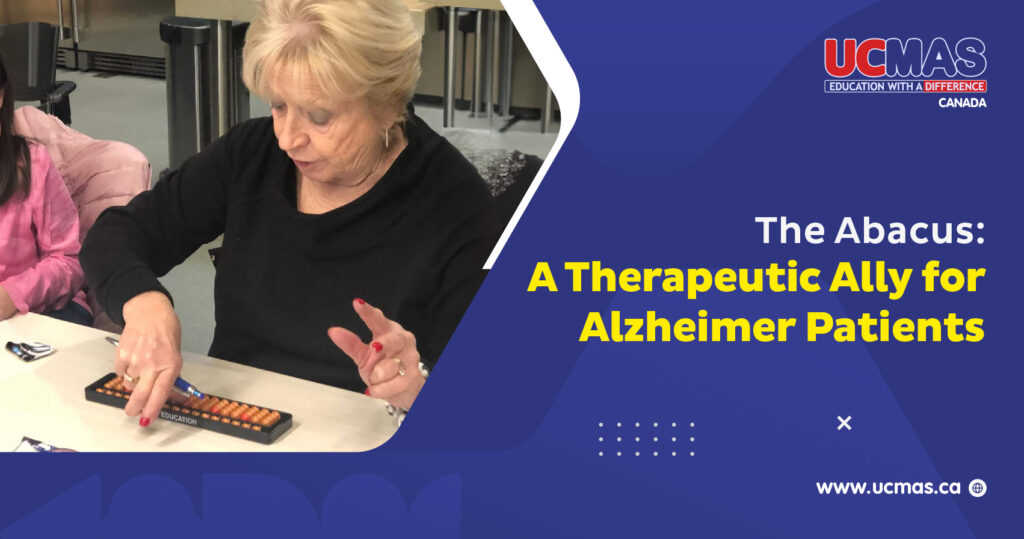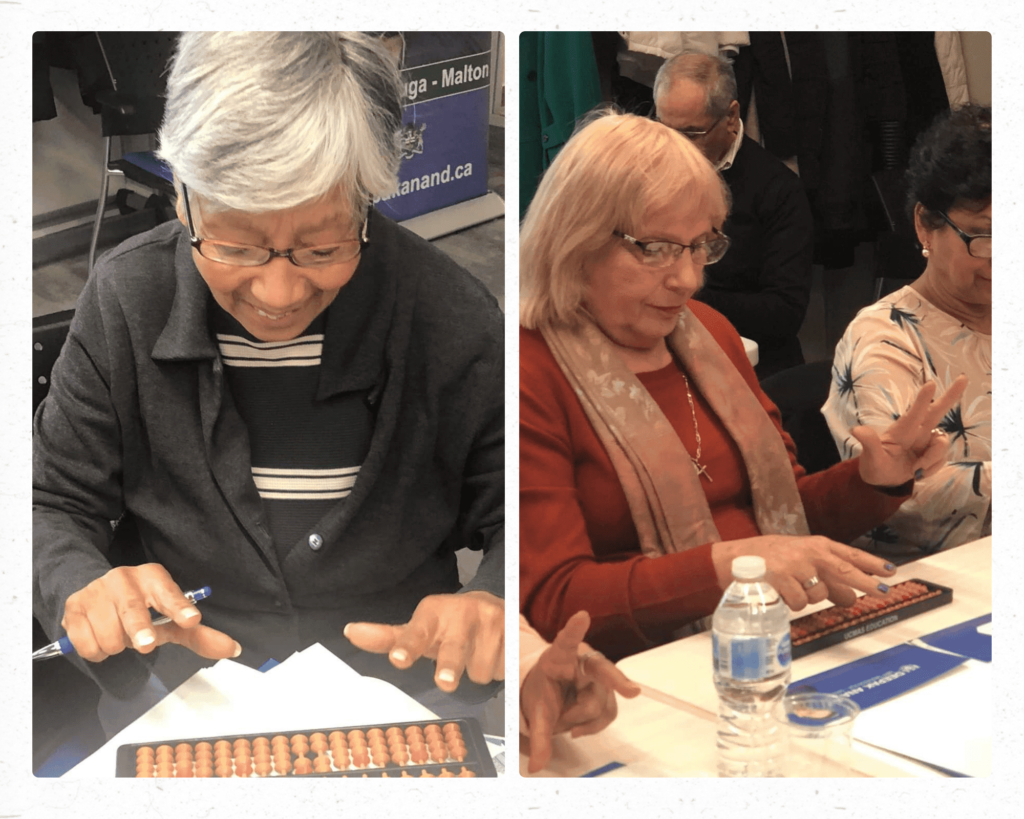
January marks Alzheimer’s Awareness Month in Canada. The goal is to spread information about detection, causes and risk factors, available treatment options, and coping strategies for families. As it aims to raise awareness and empower us all to stand with those fighting Alzheimer’s, it presents an opportunity for us at UCMAS Canada to highlight alternative therapies that can aid those suffering from Alzheimer’s disease and other forms of dementia.
How Does Abacus Math Support Cognitive Health?
For individuals in the early to moderate stages of cognitive decline, activities that engage the mind and senses in a stimulating yet relaxing way may help strengthen neural connections and restore cognitive faculties, even if just temporarily. These activities include puzzles, musical instruments, arts and crafts, light gardening, and meditation, but the most prominent of all – Abacus math, with its visual-spatial and motor benefits, shows particular promise as one such mind-enhancing activity. The abacus has taken on an intriguing new role – as a therapeutic tool for strengthening the deteriorating minds of Alzheimer’s patients. This simple calculating device, consisting of beads sliding along rods, has demonstrated profound potential for training the cognition, concentration, and memory loss associated with this devastating neurodegenerative disease.
Alzheimer’s disease is often called “the long goodbye” due to its slow, insidious progression of robbing individuals of their memories, independence, and ultimately their lives as it involves the deterioration of brain cells, leading to a decline in cognitive function over time. Alzheimer’s disease is a complex illness with many facets to understand. Grasping the fundamentals enables us to properly discuss, research, and address this condition. Common early symptoms include short-term memory loss, difficulty finding words, and mood changes. As it advances, symptoms may include confusion, disorientation, poor judgment, and eventually difficulty speaking, swallowing, and walking.

Explore the advantages of using the abacus for Alzheimer’s patients:-
Cognitive Benefits
A research found that abacus math training significantly improved overall cognitive function in Alzheimer’s patients over 4 months. Patients showed increased attention spans, able to focus on calculations longer without distraction. Their working memory also improved, with more accurate recall of number sequences during and after practice. Additionally, their visuospatial processing skills sharpened, allowing faster recognition and manipulation of abacus beads. These enhancements were substantial, with abacus-trained patients outperforming those undergoing only drug therapy. For Alzheimer’s patients in early to moderate decline, abacus math calculation may stimulate weakened neural pathways and reinforce deteriorating connections in memory and reasoning circuits. By strengthening these mental pathways, practicing the abacus daily empowers individuals with Alzheimer’s to momentarily regain mental abilities that may have been diminished.
Visual-Spatial Activation
Experts attribute these improvements to the mental simulation that abacus math calculation provides to the brain. Visually manipulating the beads activates spatial reasoning and visual information processing circuits, primarily in the right hemisphere of the brain. The intense concentration and information processing required to perform arithmetic on the abacus is believed to stimulate neuroplasticity – the brain’s innate ability to reorganize neural pathways and strengthen connections weakened by the onset of Alzheimer’s.
Multisensory Engagement
Additionally, the dynamic, hands-on nature of abacus math calculation complements its visual effects. The smooth, rhythmic physical motion of sliding the beads engages the motor neural pathways, while the synchronized clicking sound helps anchor attention. Together, these multisensory inputs may create a kind of cognitive conditioning routine, rehabilitating Alzheimer’s-damaged neural networks. In this manner, the abacus functions simultaneously as both a training exercise and a memory aid for the Alzheimer’s brain.
A Promising Non-Pharmacological Therapy
A hopeful non-drug therapy is like a ray of light in Alzheimer’s care, emphasizing treatment approaches that don’t involve medications. In simpler terms, it’s about finding alternative ways to support individuals facing cognitive challenges without relying on drugs. When we say it’s “promising,” we’re expressing optimism – early signs and initial research suggest that the therapy, such as using the abacus, could bring positive results. It’s like seeing a glimmer of hope that this approach might truly make a difference in improving the lives of those dealing with Alzheimer’s, dementia, and cognitive decline.

In the challenging fight against Alzheimer’s, abacus math emerges into the spotlight as an unexpected hero. It’s awe-inspiring that a tool like an abacus holds such a magical ability to breathe life and vibrancy into the days of patients. UCMAS serves as a testament to the innovative spirit needed to confront complex challenges, reminding us that sometimes, solutions lie in the most unexpected places—perhaps even within the beads of a simple abacus.
To learn more about the UCMAS abacus and mental math program and how it enhances a child’s brain development journey, contact us and Book a Free Info Session today!





